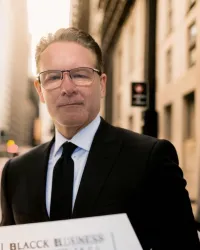WHAT FORE MEMBERS ARE SAYING
" What is currently considered as constituting an alternative or a hedge fund? What do these entities serve as alternatives to, and against what risks do they act as hedges? "
MEMBER LINK
Community | Education | Legacy
FAMILY OFFICE REAL ESTATE INSTITUTE BLOG
The Latest on Family Offices and Real Estate, At the Family Office Real Estate Institute, our commitment to advancing knowledge and expertise in real estate management within family offices extends beyond the classroom.
MEMBER LINK
Community | Education | Legacy

Legacy and Liability: Navigating the Complex Terrain of Wealth Management
Introduction
In the exclusive echelons of ultra-high-net-worth (UHNW) individuals and single-family offices, wealth management extends far beyond mere investment strategies. It encompasses a multifaceted realm of estate planning, tax considerations, and the desire for a lasting legacy. However, this realm is fraught with frustrations, fears, and desires unique to this demographic. This blog delves deep into these complexities, offering insights into the challenges faced by UHNW individuals and single-family offices in achieving efficient wealth transfer, the apprehension surrounding estate taxes, and the intricate process of estate planning. By understanding these elements, we can better appreciate the nuanced strategies to safeguard and perpetuate wealth across generations.
FRUSTRATIONS
The Gordian Knot of Estate Planning
For UHNW individuals and single-family offices, estate planning emerges as a Herculean task, encapsulated by its sheer complexity. This complexity is not merely a byproduct of the substantial financial assets in question but also stems from the intricate legal, financial, and familial dynamics involved. The primary frustration lies in navigating the labyrinth of global regulations, which can vary significantly from one jurisdiction to another, affecting everything from trusts to wills. Moreover, the endeavor to harmonize the interests of multiple family members, each with their unique aspirations and needs, adds another layer of complexity.
The Challenge of Succession Planning
Succession planning represents a critical facet of estate planning, where the frustration is often felt most acutely. Deciding who will take over the helm of family businesses, foundations, or philanthropic endeavors requires careful consideration of each potential successor's capabilities, interests, and vision for the future. This process can be fraught with emotional challenges and potential conflicts, necessitating a nuanced approach that balances family dynamics with the pragmatic needs of the enterprise.
Evolving Legal and Financial Landscapes
The challenges are further compounded by the evolving landscape of international laws affecting privacy, asset protection, and cross-border estate planning. UHNW families often hold assets in multiple countries, each with its own set of rules regarding inheritance and wealth transfer. This global dispersion necessitates a delicate balancing act to optimize estate planning strategies, ensuring compliance while achieving the family's overarching objectives. Additionally, digitalizing assets, including cryptocurrencies and digital businesses, introduces new considerations into estate planning, demanding specialized knowledge and innovative approaches.
FEARS
The Specter of High Estate Taxes
Among the greatest fears for UHNW individuals and single-family offices is the potential financial erosion due to high taxes on estate transfers. This fear is not unfounded, as many jurisdictions impose substantial taxes on the transfer of wealth to the next generation or to charitable organizations. The impact of these taxes can significantly diminish the value of the estate, complicating efforts to preserve wealth for future generations.
Strategies to Combat Tax Liabilities
The apprehension is magnified by the unpredictable nature of tax legislation, which can change with shifting political landscapes. Such changes may introduce higher tax rates or eliminate beneficial structures, requiring constant vigilance and adaptability in estate planning strategies. This fear drives the pursuit of sophisticated tax planning measures, aimed at minimizing the tax burden while adhering to legal and ethical standards. Strategies such as the use of trusts, life insurance policies, and philanthropic giving are employed to mitigate the impact of estate taxes, yet they require expert guidance and foresight to implement effectively.
The Importance of Timely Planning
Procrastination in addressing potential tax liabilities can exacerbate the fears associated with high estate taxes. Early and proactive engagement in estate and tax planning can uncover opportunities for tax optimization that might be overlooked or unavailable in eleventh-hour planning efforts. This proactive approach not only helps in mitigating tax liabilities but also in crafting a more coherent and forward-looking estate plan.
DESIRES
The Quest for Efficient Wealth Transfer
Central to the desires of UHNW individuals and single-family offices is the efficient transfer of wealth to heirs and charities. This desire is not solely a matter of financial optimization but also reflects a deep-seated intention to leave a lasting legacy and to contribute meaningfully to society. Achieving this efficiency entails not only minimizing tax liabilities but also ensuring that the transfer of wealth aligns with the family's values and the individual aspirations of its members.
Philanthropy as a Tool for Legacy Building
Philanthropy plays a pivotal role in this context, serving as a vehicle for UHNW families to channel their wealth toward causes they are passionate about, while also engaging in strategic giving that benefits their overall estate planning. Moreover, the desire for efficiency extends to the operational aspect of wealth transfer, encompassing the mechanisms through which assets are managed and distributed. This involves the creation of clear, legally sound structures that facilitate the seamless transition of assets, whether through direct inheritance, trusts, or foundations.
Educating the Next Generation
Efficient wealth transfer also implies the education and preparation of the next generation to manage and preserve the family's legacy. This aspect of wealth transfer is often overlooked but is crucial for ensuring that heirs are equipped with the knowledge and values needed to steward the family's assets responsibly. It encompasses financial education, exposure to the family's philanthropic endeavors, and involvement in the governance of family enterprises and trusts.
SUMMARY
Navigating the complexities of wealth for UHNW individuals and single-family offices requires a comprehensive understanding of the interplay between legal, financial, and emotional factors. The frustrations of intricate estate planning, the fears of eroding wealth due to high estate taxes, and the desire for an efficient and meaningful transfer of wealth to heirs and charities are challenges that demand thoughtful strategies and proactive management. By addressing these issues through sophisticated planning, education, and governance, UHNW individuals and single-family offices can ensure the preservation and growth of their legacies for generations to come.
As we have explored, achieving these objectives is not merely a technical exercise in financial management but a deeply personal journey that involves navigating family dynamics, aligning with ethical and philanthropic values, and preparing the next generation for their roles as stewards of wealth. It is through this multifaceted approach that UHNW individuals and single-family offices can truly navigate the labyrinth of wealth management, turning challenges into opportunities for growth, impact, and enduring legacy. In doing so, they not only secure their financial future but also contribute to a legacy that transcends material wealth, embodying values, vision, and a commitment to positive societal change.
The Family Office Real Estate Institute (“FORE”) or )the “FORE Institute”) is not affiliated in any way with the University of Denver. Nor are any FORE Institute programs or classes affiliated with the University of Denver. The FORE Institute only uses it facilities for its classes, programs, and events. The University of Denver are the various schools within the University do not sponsor or endorse the FORE Institute, any of its information, products, classes, events, or comments. The FORE Institute declares no affiliation, sponsorship, or partnership with the University of Denver. The FORE Institute stands independently as a for-profit business.
© 2024 Family Office Real Estate Institute










